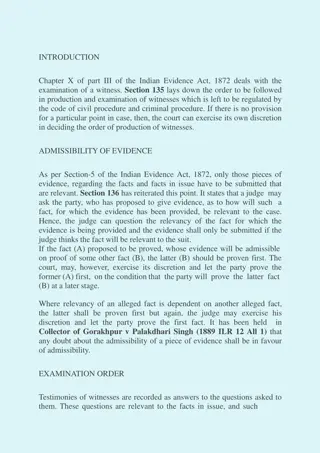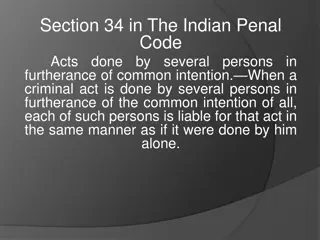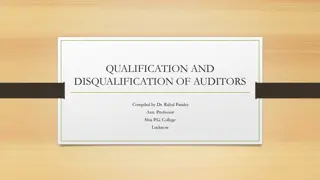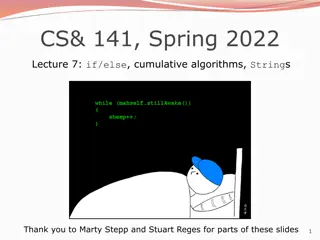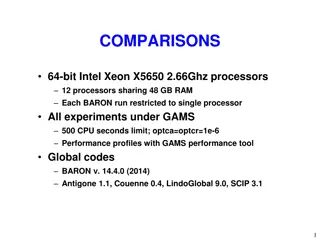
Fascinating Linguistic Connections and Language Families
Explore the intriguing world of linguistics through NLP, cognates in various languages, IPA charts, Indo-European language roots, and diverse language families like Altaic and Semitic. Discover the interconnectedness of languages and their historical origins.
Download Presentation

Please find below an Image/Link to download the presentation.
The content on the website is provided AS IS for your information and personal use only. It may not be sold, licensed, or shared on other websites without obtaining consent from the author. If you encounter any issues during the download, it is possible that the publisher has removed the file from their server.
You are allowed to download the files provided on this website for personal or commercial use, subject to the condition that they are used lawfully. All files are the property of their respective owners.
The content on the website is provided AS IS for your information and personal use only. It may not be sold, licensed, or shared on other websites without obtaining consent from the author.
E N D
Presentation Transcript
Introduction to NLP Linguistics
IPA Chart (consonants) By IPA (http://www.langsci.ucl.ac.uk/ipa/ipachart.html) [CC-BY-SA-3.0 (http://creativecommons.org/licenses/by-sa/3.0)], via Wikimedia Commons
IPA Chart (vowels) By IPA (http://www.langsci.ucl.ac.uk/ipa/ipachart.html) [CC-BY-SA-3.0 (http://creativecommons.org/licenses/by-sa/3.0)], via Wikimedia Commons
(Many) Languages are Related Cognates night (English), nuit (French), Nacht (German), nacht (Dutch), nag (Afrikaans), nicht (Scots), natt (Swedish, Norwegian), nat (Danish), n tt (Faroese), n tt (Icelandic), noc (Czech, Slovak, Polish), , noch (Russian), , no (Macedonian), , nosht (Bulgarian), , nich (Ukrainian), , noch/no (Belarusian), no (Slovene), no (Serbo-Croatian), , nyx (Ancient Greek, /nychta in Modern Greek), nox/nocte (Latin), nakt- (Sanskrit), nat (Albanian), noche (Spanish), nos (Welsh), nueche (Asturian), noite (Portuguese and Galician), notte (Italian), nit (Catalan), nu ch/nu it (Occitan), noapte (Romanian), nakts (Latvian) and naktis (Lithuanian), all meaning "night" and derived from the Proto-Indo-European (PIE) *n k ts, "night". From wikipedia
Some Indo-European languages Proto-Indo-European Indo-Iranian Hellenic Italic Balto-Slavic Germanic Sanskrit Old Persian Lithuanian Russian Polish Old English Greek Latin Old High German German Romanian Modern English Farsi French Catalan Bengali Urdu
Some non-Indo-European Languages Altaic Turkish Uralic (Finno-Ugric) Finnish Hungarian Semitic Arabic Hebrew Uto-Aztecan
Language Families By Industrius at English Wikipedia. Later version(s) were uploaded by Mttll at English Wikipedia. (Image:BlankMap-World.png by User:Vardion) [GFDL (www.gnu.org/copyleft/fdl.html)], via Wikimedia Commons
Language Diversity Afro-Asiatic (374) Alacalufan (2) Algic (44) Altaic (66) Amto-Musan (2) Andamanese (13) Arafundi (3) Arai-Kwomtari (10) Arauan (5) Araucanian (2) Arawakan (59) Arutani-Sape (2) Australian (264) Austro-Asiatic (169) Austronesian (1257) Aymaran (3) Barbacoan (7) Basque (1) Bayono-Awbono (2) Border (15) Caddoan (5) Cahuapanan (2) Harakmbet (2) Hibito-Cholon (2) Hmong-Mien (38) Hokan (23) Huavean (4) Indo-European (439) Iroquoian (9) Japonic (12) Jivaroan (4) Kartvelian (5) Katukinan (3) Kaure (4) Keres (2) Khoisan (27) Kiowa Tanoan (6) Lakes Plain (20) Language isolate (50) Left May (2) Lower Mamberamo (2) Lule-Vilela (1) Macro-Ge (32) Mairasi (3) Maku (6) Mascoian (5) Mataco-Guaicuru (12) Mayan (69) Maybrat (2) Misumalpan (4) Mixed language (23) Mixe-Zoque (17) Mongol-Langam (3) Mura (1) Muskogean (6) Na-Dene (46) Nambiquaran (7) Niger-Congo (1532) Nilo-Saharan (205) Nimboran (5) North Bougainville (4) North Brazil (1) North Caucasian (34) Oto-Manguean (177) Panoan (28) Pauwasi (5) Peba-Yaguan (2) Penutian (33) Piawi (2) Pidgin (17) Quechuan (46) Ramu-Lower Sepik (32) Salishan (26) Salivan (3) Senagi (2) Sepik (56) Sino-Tibetan (449) Siouan (17) Sko (7) Somahai (2) South Bougainville (9) South-Central Papuan (22) Tacanan (6) Tai-Kadai (92) Tarascan (2) Tequistlatecan (2) Tor-Kwerba (24) Torricelli (56) Totonacan (12) Trans-New Guinea (477) Tucanoan (25) Tupi (76) Unclassified (73) Uralic (37) Uru-Chipaya (2) Uto-Aztecan (61) Wakashan (5) West Papuan (23) Witotoan (6) Yanomam (4) Yele-West New Britain (3) Yeniseian (2) Yuat (6) Yukaghir (2) Yuki (2) Zamucoan (2) Zaparoan (7) Carib (31) Central Solomons (4) Chapacura-Wanham (5) Chibchan (21) Chimakuan (1) Choco (12) Chon (2) Chukotko-Kamchatkan (5) Chumash (7) Coahuiltecan (1) Constructed language (1) Creole (82) Deaf sign language (130) Dravidian (85) East Bird s Head-Sentani (8) East Geelvink Bay (11) East New Britain (7) Eastern Trans-Fly (4) Eskimo-Aleut (11) Guahiban (5) Gulf (4) Ethnologue (7358 languages)
Language Changes Grimm s Law Voiceless stops turn into voiceless fricatives Voiced stops become voiceless stops Voiced aspirated stops change to voiced stops or fricatives Example 1 Ancient Greek: , Latin: p s, Sanskrit: p da English: foot, German: Fu , Swedish: fot Example 2 Ancient Greek: , Latin: canis, Welsh: ci English: hound, Dutch: hond, German: Hund
NACLO Problem http://nacloweb.org/resources/problems/2012/N2012-D.pdf http://nacloweb.org/resources/problems/2012/N2012- DS.pdf Problem by Dragomir Radev http://unicode.org/udhr/assemblies/first_article_all.html
English Latin Slovenian Breton Romansch Romanian Welsh Lithuanian Sardinian Basque Karelian
Slovak Corsican Irish Latvian Finnish Polish
Diversity of languages Articles Cases (e.g., in Latin) Puer puellam vexat Sound systems Glottal stop (the middle sound in uh-oh ) - pro Velar fricatives - articulated with the back of the tongue at the soft palate Voiceless /x/ - used e.g., in Russian Voiced / / - used e.g., in Modern Greek Social status (e.g., in Japanese) otousan, = someone else s father chichi, = one s own father Kinship systems (e.g., in Warlpiri) see next slide
Links about World Languages Ethnologue http://www.ethnologue.com/ Number words in many languages http://www.zompist.com/numbers.shtml Endangered languages http://www.endangeredlanguages.com/ Google fights to save 3,054 dying languages http://www.cnn.com/2012/06/21/tech/web/google-fights- save-language-mashable/index.html


